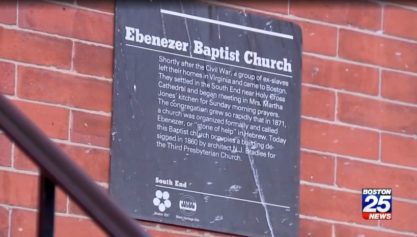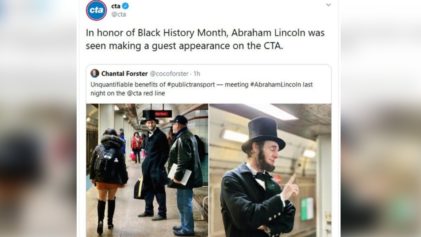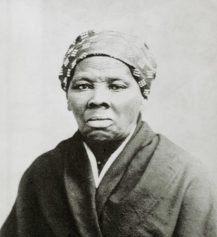Think oil and water. Lions lying down with lambs. Whole Foods Markets, Inc., opening an 18,000-foot store in the predominantly Black, low-income Englewood section of Chicago.
That last incongruous pairing became a reality in September, after the pricey food critics call “Whole Paycheck” jumped the broom with a South Chicago community where double-digit unemployment and a $20,500 median income are the norm. The jury’s still out on the marriage, which fueled lofty expectations for both of the betrothed. Whole Foods entered the union looking to generate positive social-equity spin and handsome profits but is playing it close to the vest regarding how things have gone thus far.
Englewood, a so-called food desert where options for purchasing junk food far surpass those for buying fresh, nutritious alternatives, was looking to retool that paradigm. But with its one-year anniversary with Whole Foods fast approaching, the community appears to have fallen short of that goal, notes Chicago urban planner and community activist Naomi Davis.
“The food desert phenomenon for me has been a Trojan horse into the Black community,” says Davis who has a law degree and runs a social justice organization called Blacks In Green. “I don’t think Whole Foods is here because they have a burning desire to serve low-income Blacks.”
Rather, Davis believes Whole Foods is a canary in a coal mine: In her estimation, the purveyor of expensive organic, local and sustainable food items really has its sights set on the Chicago residents gentrifying Englewood as they flee more expensive sections of the city.
Phones calls and emails sent to Whole Foods Markets, Inc., by atlantablackstar.com were not returned. The company’s focus may have been diverted by a stock price that dipped 15 percent last year, as well as by a recent Amazon deal to purchase Whole Foods for $13.7 billion.
“We aren’t doing a nonprofit here. This is a for-profit business,” Whole Foods co-chief Executive Walter Robb told the Wall Street Journal last year after the Englewood store opened. “The model is slightly different, but to be clear, we’re operating to run a successful business here in Englewood.”
In an effort to offer consumers cheaper goods than those sold at most Whole Foods stores, at Englewood the company lowered the prices of 30 staple items. In July, Congressional Black Caucus member U.S. Rep. Marcia L. Fudge (D-Ohio) was curious if an approved Amazon/Whole Foods merger might have the potential to generate more food deserts in African-American communities. Fudge wrote to U.S. Attorney General Jeff Sessions and Maureen Ohlhausen, acting chairman of the Federal Trade Commission, requesting that the proposed merger be subjected to particularly thorough anti-trust scrutiny.
“While Whole Foods may have a limited presence in many of our districts, further consolidation may force grocers who have a stronger brick-and-mortar presence in our communities to respond to this merger,” Fudge’s letter states. “As a result, it is possible these grocers will consolidate further and close stores that offer any, or the only, option to low-income communities.”
Studies indicate that people in food deserts are more likely to die from, and suffer prematurely from, diabetes, hypertension and other diet-related conditions. They’re also more likely to be obese.
In 2013, when Whole Foods made its first foray into a Black Detroit neighborhood, the move coincided with a growing influx of white residents. And real estate site Zillow has noted that when a Whole Foods grocery store, or a Trader Joe’s enters a neighborhood, that’s usually followed by a corresponding rise in property values.
Ultimately, the Whole Foods/Englewood marriage is a positive thing, according to Chicago community-impact consultant Mari Gallagher. “Whole Foods going into different communities of color is a game changer,” says Gallagher, who operates the Mari Gallagher Research & Consulting Group. “A Whole Foods coming into Englewood sends a different signal to the community and to the marketplace about what is possible. It might attract other grocery stores, it might attract entrepreneurs growing their own stuff and trying to get it placed in Whole Foods.
“Retail attracts retail and like attracts like, in either a positive or a negative way.”
Whole Foods’ move into Englewood is being closely monitored in Charlotte, North Carolina, by food activist Robin Emmons. In 2008, she quit her Bank of America financial analyst job and started growing vegetables on her quarter-acre backyard to feed to underserved Charlotte families.
“Whole Foods is at the top of the continuum of food options here in America,” observes Emmons, the founder of Sow Much Good. “It’s hard for me to imagine that they would have a pure interest in alleviating disparities that exist in underserved communities. Also, they’re being acquired by Amazon, so we don’t know how all that is going to unfold. They’re [Whole Foods] concerned about profit and they’re accountable to their bottom line and their shareholders, not poor Black people.
At the end of the day, Emmons says the eradication of food deserts in Black neighborhoods is pegged to: “How do we create something that is for us and by us, so we can keep our dollars circulating in our own communities?”


